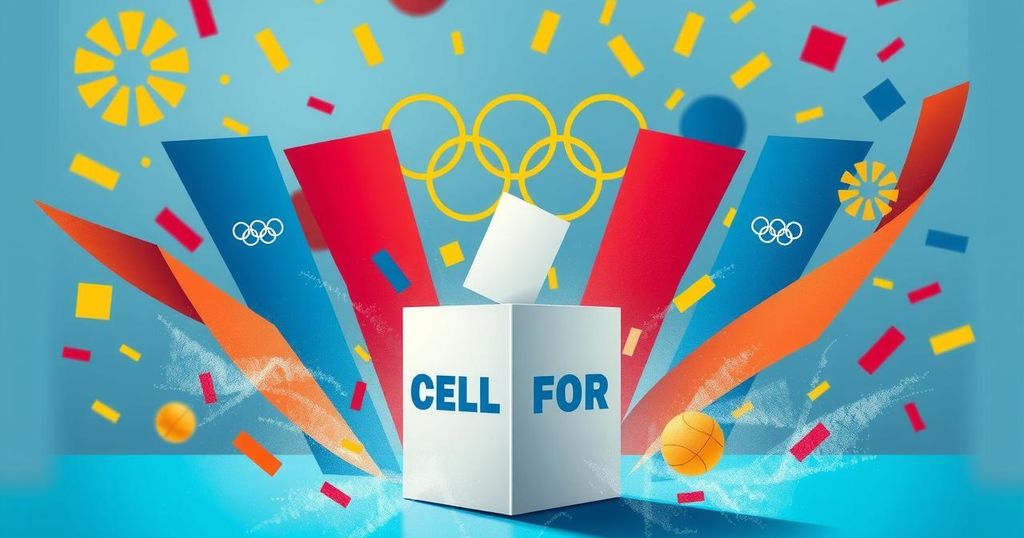IOC Election Day: A Pivotal Moment for Olympic Leadership

The IOC is set to elect a new president in a competitive field of seven candidates, including IOC vice president Juan Antonio Samaranch and notable athletes Sebastian Coe and Kirsty Coventry. Voting begins at 4 p.m. local time, with expected results shortly thereafter. The elected leader will oversee preparations for the 2028 Los Angeles Games and choose a host for the 2036 Olympics, marking an important moment for the organization and its future direction.
Election day for the International Olympic Committee (IOC) will take place in Costa Navarino, Greece, where the new president will be elected. This marks the selection of only the 10th leader in the IOC’s 131-year history. The elected president will have an eight-year term to guide the IOC and facilitate preparations for the 2028 Summer Games in Los Angeles, as well as select a host city for the 2036 Olympics, potentially in India or the Middle East.
Voting is set to commence at 4 p.m. local time for approximately 100 eligible IOC members, with results expected within half an hour. The election features seven candidates, all vying for an absolute majority of votes at a resort near Ancient Olympia. Notable contestants include IOC vice president Juan Antonio Samaranch, alongside two-time Olympic gold medalists Sebastian Coe and Kirsty Coventry, who has the potential to become the first female and African president of the IOC.
Kirsty Coventry, the sports minister of Zimbabwe, has expressed her commitment, stating, “Let’s create some change, let’s make sure that happens.” Seen as the favored successor to outgoing president Thomas Bach, Coventry’s election could symbolize a significant shift within the organization. Bach, who served a maximum of 12 years in office, was celebrated during the first day of the IOC’s annual meeting and is recognized with the honorary title of president for life.
Under Bach, the IOC has achieved financial stability, projected to earn over $8 billion through the Los Angeles Olympics, with confirmed hosts extending through 2034 across various nations. The new president will also be tasked with making strategic decisions regarding the host for the 2036 Summer Games, a significant responsibility as Samaranch noted, “We must concentrate (on) successful and relevant Olympic Games. The rest comes with success in the games.”
The voting body comprises a diverse group, including royal family members, former legislators, diplomats, business executives, sports officials, and Olympic athletes, all integral to the decision-making process in this crucial election for the future of the IOC.
In summary, the IOC election occurring in Costa Navarino, Greece, represents a pivotal moment in Olympic history, showcasing a diverse array of candidates. With critical responsibilities ahead, including the organization of the Los Angeles 2028 Olympics and the selection of a host for the 2036 Games, the newly elected president will face significant challenges. The event not only marks a transition in leadership but also promises potential changes within the IOC’s structural dynamics, particularly with candidates like Kirsty Coventry aiming for historic milestones.
Original Source: kstp.com







